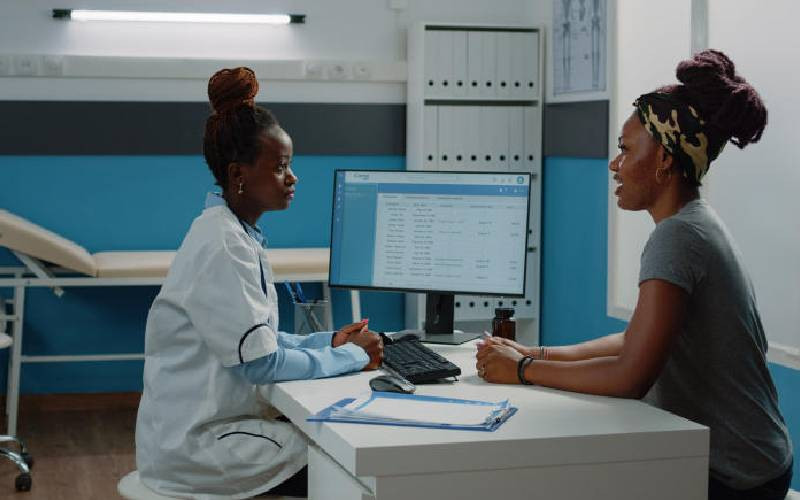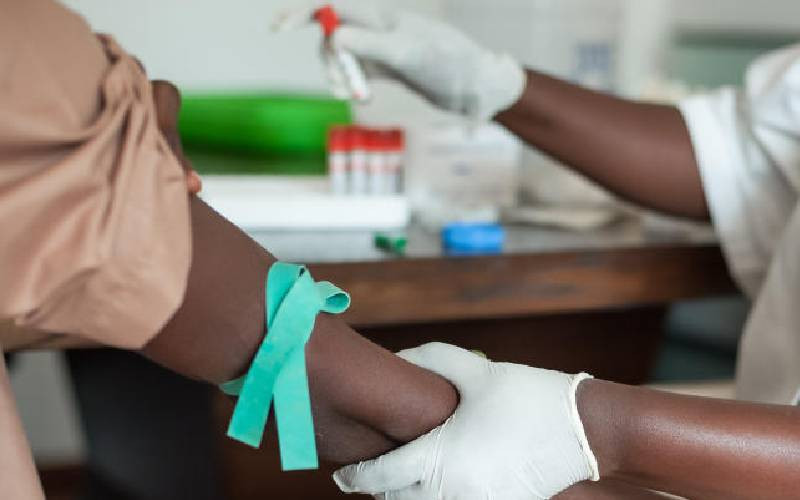Kenya: Most women can safely give birth in clinics, birth centres and homes when skilled care and effective referral are available.
Working as a nurse in hospitals both in Kenya and the United Kingdom for two and a half decades has led Lydiah Mwanzia to believe in safe deliveries in any place that an expectant mother deems comfortable.
As a former midwife and now a lecturer at the department of Midwifery and Gender at the Moi University School of Nursing, she believes that birth is a natural process that should not be interfered with unless it deviates from what is expected.
Mwanzia hopes to influence policy and practise through research and training to change mindsets in the practise of maternal and newborn health in Kenya.
“Women have a right to where and when to give birth as long as a skilled individual is available to assist,” says Mwanzia, adding that with training, Traditional Birth Attendants and retired midwives can also participate in assisting women to give birth.
While assisting women to give birth, Mwanzia felt that there was an injustice evident in how women were treated during labour, delivery and thereafter, igniting a passion to delve into research of reproductive health rights and privileges.
“In some maternity wings where I worked as a student nurse and thereafter as a midwife, women were abused, slapped and treated in a harsh manner prompting a self-interest as my contribution to ensure women went through honourable births,” says Mwanzia in an interview with the Standard on Saturday.
Changing attitudes
The discrepancies between published research and practice in health facilities saw this mother of two sons aged 20 and 13 years, enroll for Masters in Maternal and Neonatal Health at Moi University and she is currently undertaking a PhD at the Great Lakes University in Kisumu in the same field.
Despite digging into research, she is now keen at changing the attitudes of health workers especially those working in maternity and newborn units, by advocating for the understanding and adoption of an internationally recognised protocol known as the International Mother Baby Childbirth Initiative (IMBCI).
Practiced in 163 countries, IMBCI aims at improving the quality of maternity care globally through research, education, advocacy and policy.
“I want to be part of the movement creating change and instilling confidence by encouraging a woman and her partner to be aware of what happens during labour, understand the interventions during delivery and consent to procedures with the right information provided,” she points out.
She agrees with the WHO’s 1990 citation that the degree of social justice and respect for human dignity and women’s rights in society is reflected by maternal health status in a society.
“The human birth experience is one of the most significant life events for a child-bearing woman and thus, should be dignified and respectful, “ Mwanzia says during the interview at Moi University main campus in Eldoret.
Based on their experiences while giving birth, she adds, a woman can either have a powerfully great experience or a traumatic one, given that maternal reactions and feelings last a lifetime.
Equally important
Mwanzia notes that the non-verbal communication from the mother during labour is equally important and should be taken with the same level of seriousness as those verbalised.
“However, if the requests by the mother do not align with the IMCBI, she has a right of information from the midwives who are professionals and companions during the birth process,” asserts Mwanzia.
Two years ago, the United Nations viewed maternal mortality as a social injustice sending a global call that all countries should work towards reducing the number of women who die from pregnancy related complications.
Through equitable access to healthcare for the women of reproductive age today, Mwanzia believes it will be the right step forward towards upholding their reproductive health rights.
According to her, mothers should be included in the decision-making process during delivery, even when things do not go as planned calling for the observance of the IMBCI.
“Through this reproductive health rights, we should train student midwives and other health workers to appreciate women rights during pregnancy, labour and after delivery because the respect for women and human dignity underpins all maternity care,” she observes.
From science and practise, Mwanzia says birth and care should be individualised, taking priority needs of both the mother and baby over the needs of caregivers, institutions, and the medical industry.
“These are normal and healthy processes that, in most cases, need only attention and support from caregivers,” she says.
Some of the ten step components of the IMBCI include providing specific evidence-based practices proven to be beneficial in supporting the normal physiology of labour, birth and the postpartum period.
Mwanzia says this can be done by upholding birth rights like allowing labour to unfold at its own pace, offering the mother unrestricted access to food and drink as she wishes during labour, supporting her to walk and move about freely and assisting her to assume the positions of her choice like squatting and sitting.
The initiative also calls for immediate and sustained skin-to-skin mother-baby contact for warmth, attachment, breastfeeding initiation by ensuring they stay together after delivery.
Potentially unsafe procedures like artificial rupture of membranes, medical induction and repetitive vaginal exams are discouraged with the latter being a ground to infections to the woman.
Discouraged procedures
Other discouraged procedures include continuous electronic monitoring of the unborn, forceps and vacuum extraction, pain control using medicines and suctioning of the newborn.
“Consultations and transfers of care in a timely manner to appropriate institutions and specialists, should also be provided upon discharge to ensure the mother is aware of, and can access available community services specific to her needs and those of her newborn,” she adds.
Mwanzia says this can be done by establishing a caring atmosphere, listening to the mother, encouraging her self-expression, respecting her privacy and being sensitive to her cultural, religious and individual beliefs and values.
“When culturally appropriate, the father’s presence at birth can have positive effects,” she recommends.
Women, including those with prior caesareans, babies in breech positions and twins, should be accurately informed about the harms and benefits of vaginal and caesarean birth.
Mwanzia says that with the necessary birth and skills set, she would also give birth at home.
“I would love to give birth in the confines of my home, in the privacy of my bedroom as long as a midwife and an efficient referral system are available,” she says. She draws her inspiration from Prof Gene Marsh of Colorado University, who inspired her research interest and the First Lady Margaret Kenyatta for her passion in the provision of women’s health amenities especially in marginalised areas.
Empowering women who together with their skilled attendants understand and exercise their right to participate in their own care according to safe personal preferences, will foster patient satisfaction, better birth outcomes and reduced maternal mortality,” she concludes.
 The Standard Group Plc is a multi-media organization with investments in media platforms spanning newspaper print
operations, television, radio broadcasting, digital and online services. The Standard Group is recognized as a
leading multi-media house in Kenya with a key influence in matters of national and international interest.
The Standard Group Plc is a multi-media organization with investments in media platforms spanning newspaper print
operations, television, radio broadcasting, digital and online services. The Standard Group is recognized as a
leading multi-media house in Kenya with a key influence in matters of national and international interest.











